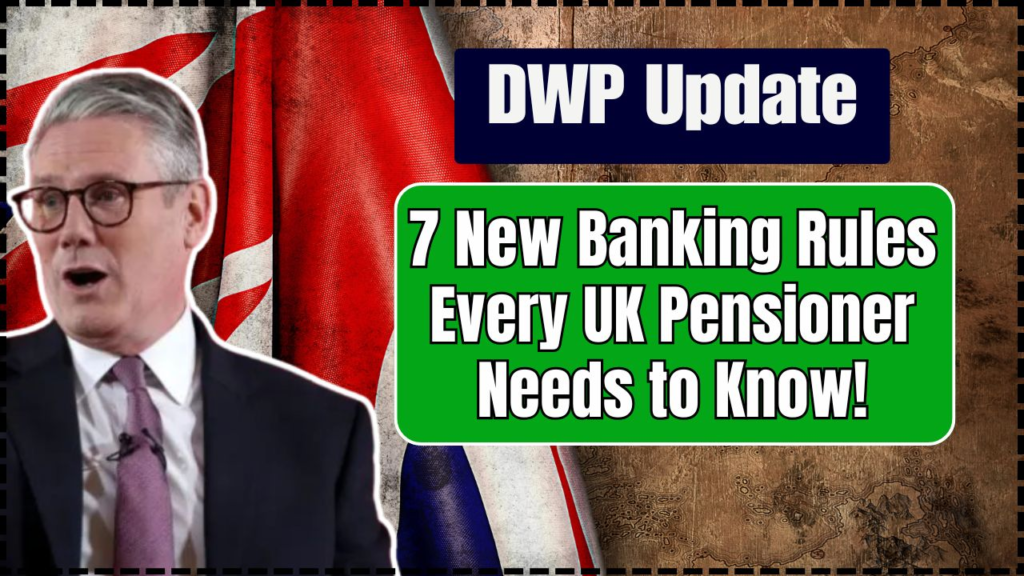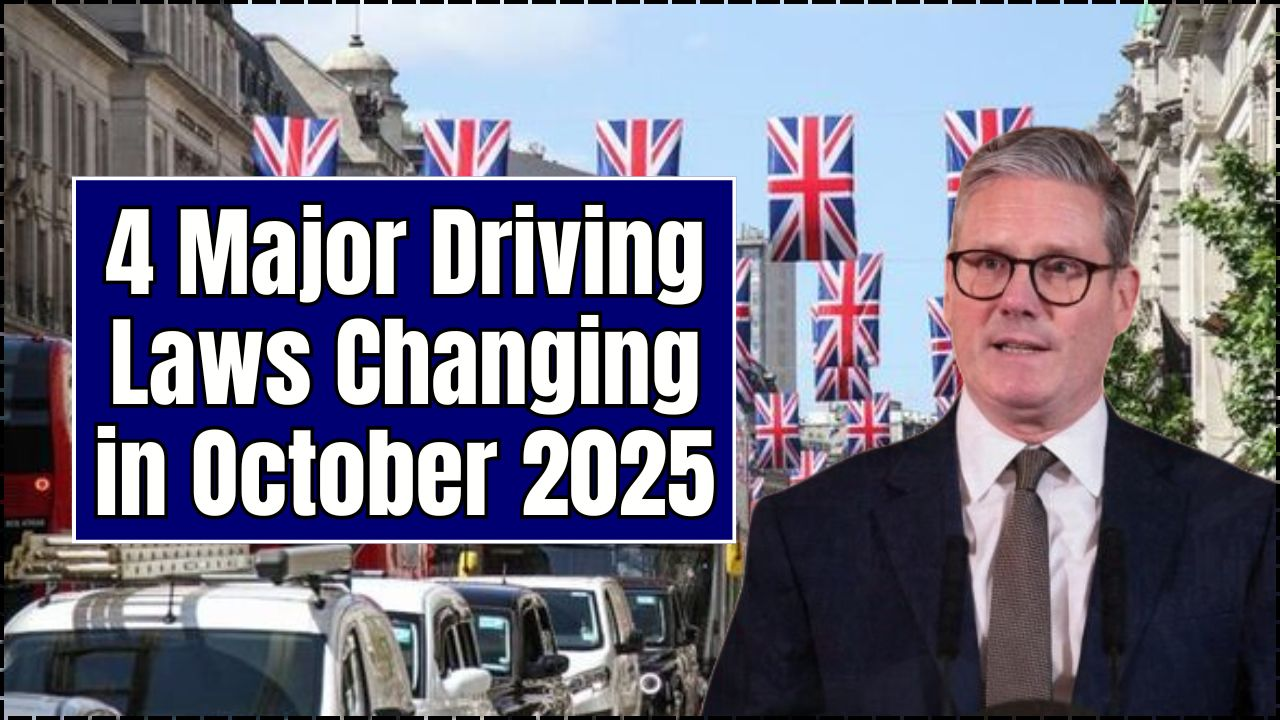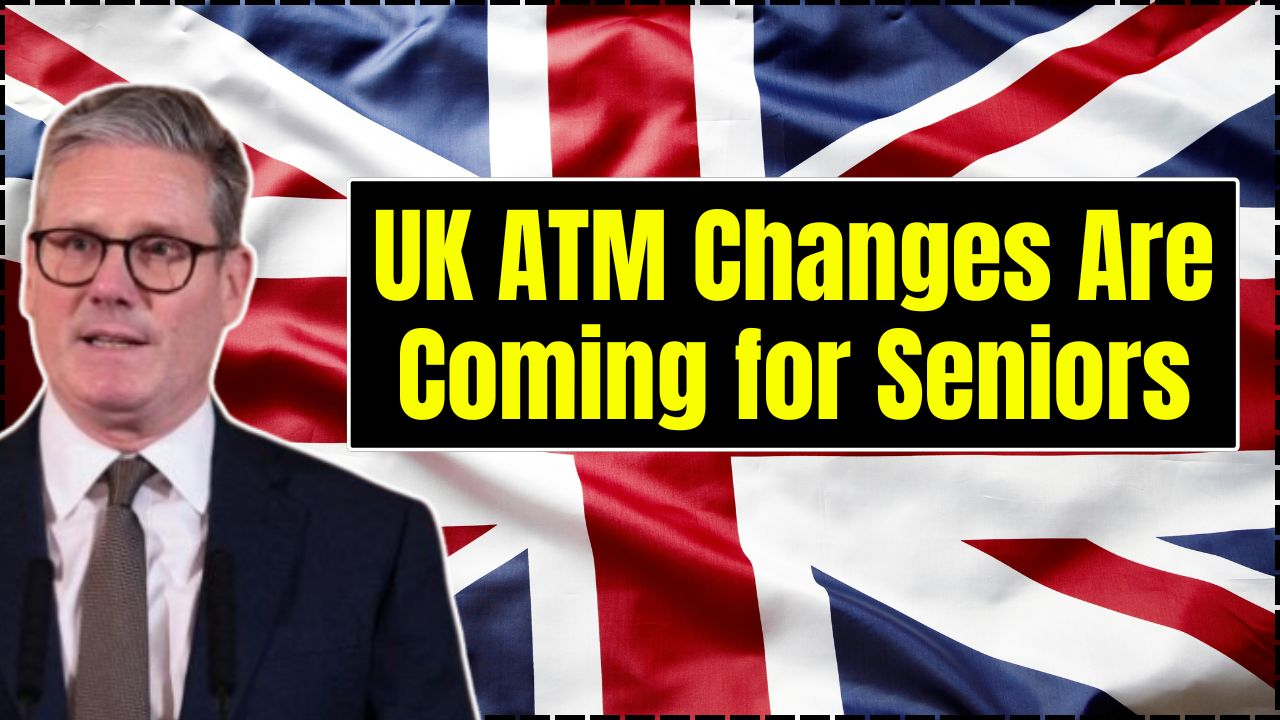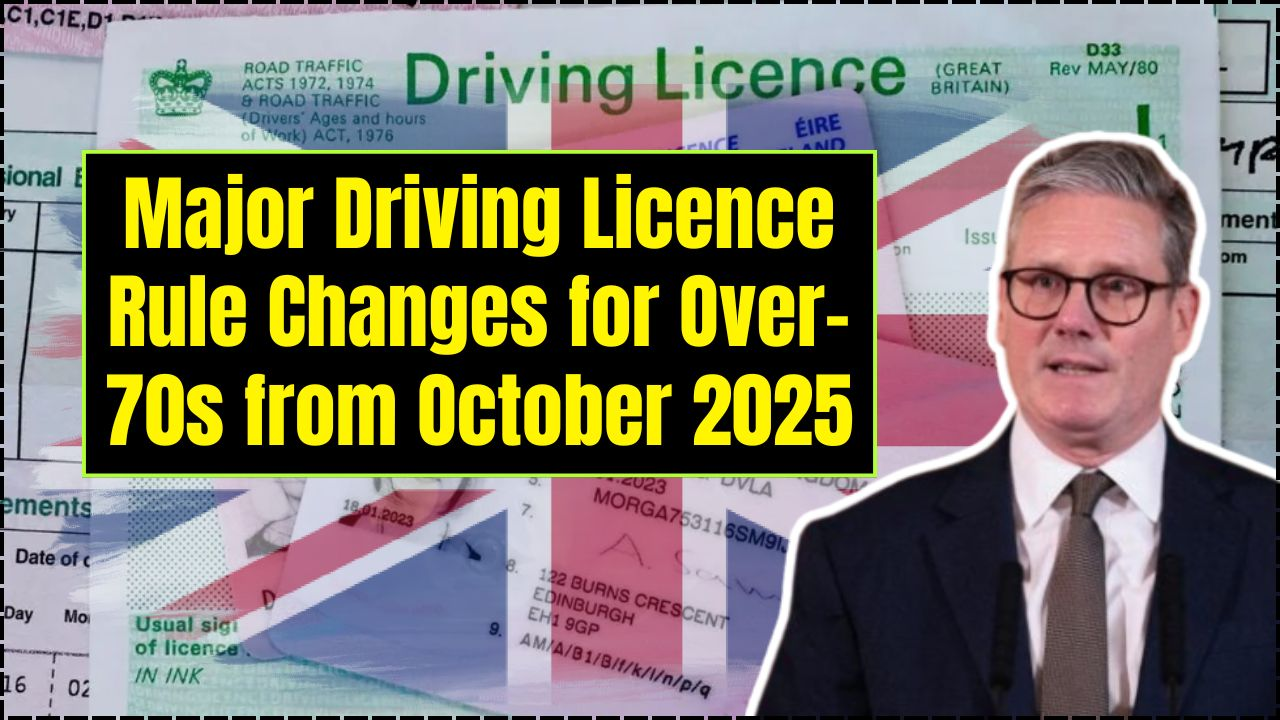
The UK Department for Work and Pensions (DWP) has confirmed that from August 2025, pensioners receiving certain benefits will face new banking verification rules. The measures are intended to curb fraud and error but have sparked debate over privacy, fairness, and the risk of disruption to millions of older citizens.
7 New Banking Rules
| Key Fact | Detail |
|---|---|
| Implementation Date | From 10–11 August 2025 |
| Benefits Affected | Pension Credit, Universal Credit, ESA; State Pension excluded |
| Data Shared | Name, DOB, account number, eligibility indicators (not spending history) |
| Potential Impact | Payment delays, freezes, or direct deductions in some cases |
Why the Rules Are Changing
The reforms are embedded in the Public Authorities (Fraud, Error and Recovery) Bill, which was presented to Parliament earlier this year. The government argues the powers are essential to reduce losses from fraudulent claims, estimated at billions of pounds annually across the welfare system.
A DWP spokesperson said: “This legislation will protect taxpayers’ money and safeguard the welfare state by ensuring benefits only reach those who are genuinely entitled.”
Fraud in means-tested benefits such as Pension Credit has been a persistent challenge, partly because eligibility depends on income and savings, which can be difficult for authorities to verify. Officials believe that closer cooperation with banks could prevent improper payments before they occur.
A Look Back: Previous Efforts to Curb Fraud
This is not the first time the government has tightened its monitoring of pension-related payments. Past reforms have included data-matching between agencies, use of the National Fraud Initiative, and more recently, the rollout of digital identity verification.
Critics argue that despite these measures, the DWP continues to face challenges in reducing fraud while maintaining smooth service for legitimate claimants. The new Bill marks a significant escalation by involving banks directly in the process.
Which Benefits Are Covered?
The new powers will initially apply to Pension Credit, Universal Credit, and Employment and Support Allowance (ESA). These are benefits where entitlement is linked to income or assets.
The State Pension — which is not means-tested — is excluded from the new verification powers. However, campaigners warn that pensioners claiming both State Pension and Pension Credit may still find themselves affected by the additional checks.
What Data Will Banks Share?
Banks and building societies will not be asked to hand over transaction histories or detailed spending data. Instead, they will share limited information: account numbers, sort codes, account holder details, and whether accounts trigger certain “eligibility indicators,” such as large balances inconsistent with a claimant’s declaration.
The DWP says these checks will be subject to oversight and guided by a new Code of Practice. “There will be no blanket trawling through people’s bank accounts,” the department stated.
Annual Verification and Reporting Obligations
Alongside bank checks, pensioners may need to re-confirm their details regularly. Reports suggest an annual re-verification process, requiring claimants to confirm their identity and provide up-to-date bank details.
Failure to respond promptly could result in payments being delayed or suspended. The DWP has reminded pensioners that they must also report any changes in personal circumstances, such as a new address, moving abroad, or a change of bank account.
Voices from Stakeholders
Government ministers argue the reforms are necessary. Work and Pensions Secretary Emma Reynolds said: “We cannot allow fraudulent claims to drain resources away from those who need them most. These measures are proportionate and will save the public purse millions.”
But advocacy groups have expressed unease. Caroline Abrahams, charity director at Age UK, said: “While we support efforts to tackle fraud, the government must ensure that no pensioner loses out simply because they fail to navigate a complicated process. Clear communication and safeguards are essential.”
Banks have also raised concerns about the administrative burden. A spokesperson for UK Finance, the banking trade association, said: “We are working closely with the DWP to implement these changes, but we must balance fraud prevention with protecting customers’ trust and privacy.”
International Comparisons
Similar measures exist in other countries. In the United States, the Social Security Administration cross-checks benefits against banking and tax data, while Canada requires periodic proof-of-life and account verification. European Union member states also use electronic verification tools, though few have mandated bank reporting on the scale now proposed in the UK.
Experts note that the UK reforms are among the most far-reaching in Europe, reflecting a strong political drive to tackle welfare fraud.
Risks and Potential Challenges
Privacy campaigners warn that increased data-sharing could lead to errors or false positives. Disability Rights UK said the Bill “amounts to financial surveillance and risks undermining trust between pensioners and the state.”
There are also fears that fraudsters could exploit the confusion with phishing scams. Experts advise pensioners to be alert to suspicious emails or phone calls and to verify directly with their bank or the DWP before providing personal details.
Case Study: A Pensioner’s Perspective
Consider Margaret, a 78-year-old pensioner who receives both State Pension and Pension Credit. Under the new system, her bank may be asked to confirm her account details. If the DWP identifies discrepancies — for example, if she recently opened a new savings account but forgot to declare it — her benefits could be paused until clarification is provided.
Supporters argue this ensures fairness, while critics warn it could leave people like Margaret facing sudden gaps in income.
Practical Guidance for Pensioners
Experts recommend:
- Keep your details updated with both your bank and the DWP.
- Have documents ready — passport, driver’s licence, or utility bills — for identity checks.
- Respond promptly to any verification requests.
- Watch for scams — official communications will never ask for PINs or full passwords.
- Seek help early if payments are delayed, by contacting the Pension Service.
FAQ About DWP Update
No. The State Pension is not covered by the new banking powers, though linked benefits like Pension Credit are.
Only account details and eligibility indicators — not transaction history or how money is spent.
You can appeal through the DWP’s standard processes. Human review is required before any payment is stopped.
Implementation is expected from 10–11 August 2025, with gradual rollout.
Looking Ahead
The DWP expects the rules to save hundreds of millions of pounds by cutting fraudulent and erroneous claims. But as the start date approaches, pensioner groups are pressing the government for clear guidance and robust safeguards.
“The success of this policy will depend on communication,” said Dr. James Lloyd of the Strategic Society Centre. “If pensioners are well-informed and supported, the risks can be minimised. If not, the potential for hardship is considerable.”












 Claim Here!
Claim Here!